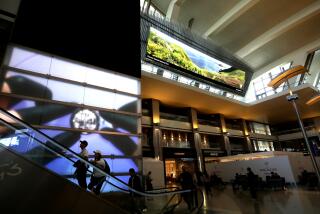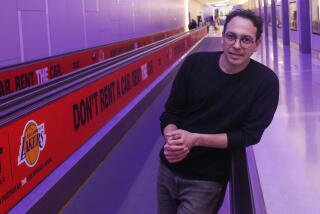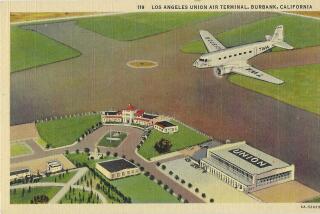Airport carpets: Donât be floored by bloggerâs area of interest
Weary travelers may long to linger over a cup of coffee or snuggle under a plush duvet. But when it comes to airports, lingering is loathed, because itâs synonymous with layover.
When George Pendle found himself stuck longer than expected at a New York airport â braced for a transatlantic flight with a few gin and tonics and a Xanax â he found his mind, not surprisingly, altered.
âI was in a Timothy Leary-esque state,â he says, recalling the moment when his eyes locked on the spilled-soda-hiding pattern beneath his feet.
Pendle, an author who divides his time between London and New York, is fascinated by carpeting in airports large and small. Itâs his hobby, although some might call it an obsession. Regardless, heâs busy recruiting frequent fliers to join his merry band of what he calls âcarpeteers.â
âFlooring is considered mundane,â he says. âWeâre all too busy looking at the sky and the planes to look at the ground beneath us. So I thought it would be a fun experiment to compare and contrast airport carpets from around the world.â
Pendle recruits travelers with time on their hands to snap close-up photos of flooring and e-mail them to him. He includes actress Claire Danes and film director Max Mayer among the growing group of contributors to https://www.carpetsforairports.com.
Thatâs where Pendle posts the pictures he receives. Alongside are the often-acerbic critiques about what he loves or loathes about the loom.
âA two-tone cream and chocolate flat weaveâ is how he begins his description of the carpeting at the San Jose airport. He adds that itâs âsuggestive of a half-drunk cup of coffee cooling at the end of an unsuccessful day of selling insurance door to door.â
Pendle concludes, however, that, âwherever there is carpet, there is hope.â He dislikes most European airports because theyâre devoid of carpeting.
âMy main problem is with tile or terrazzo or marble â or even wood â which just arenât a welcoming ground for people getting off a plane,â he says. He thinks flooring in the airports of the former Soviet republics is about as welcoming as a work camp in Siberia.
âThere are some places that just canât hide their innate character,â he notes. âThereâs something grim and foreboding about them.â
The scene brightens in many Asian lands. Pendle and his weave-watchers goggle at the wool-blend Axminster recently laid in Terminal 3 at Singaporeâs Changi International Airport.
âThe perception is that if you create a large design to fill a large space, then people donât think theyâve got as far to walk,â says Jonathan Young, global commercial sales director for Brintons, a world leader in the manufacture of airport carpet, including Singaporeâs.
âItâs sort of an urban landscape design,â he says of the abstract mix of cream, beige, gold and black lines. The Singapore project required the fleece of 65,000 sheep â nearly 450,000 pounds of yarn.
âIt has tremendous coverage in terms of design and color, so it does hide traffic lanes and soiling,â Young says.
Pendle, however, doesnât focus on function.
âI think [itâs] a marvel, but terrifying nonetheless,â he says. âIt provokes in me the same uneasy appreciation as Hitchcockâs âVertigoâ or Edvard Munchâs âThe Scream.â â
With millions of feet treading the carpeting, most airports usually must replace it every five to seven years or so. Pendle and Young note that Londonâs Heathrow Airport is âabove averageâ in this regard.
âLondon Heathrow will wait until the carpet literally is wearing through to the backing and needs replacing because it becomes hazardous,â Young says. âThatâs carpet weâve supplied, but itâs been down probably about 15 years.â
Pendle, characteristically, doesnât mince words in his description.
âThe hints of gum, squatting like black cancerous growths on a psychedelic coral reef,â he concludes, âsignifyâ¦the immutability of international travel.â


